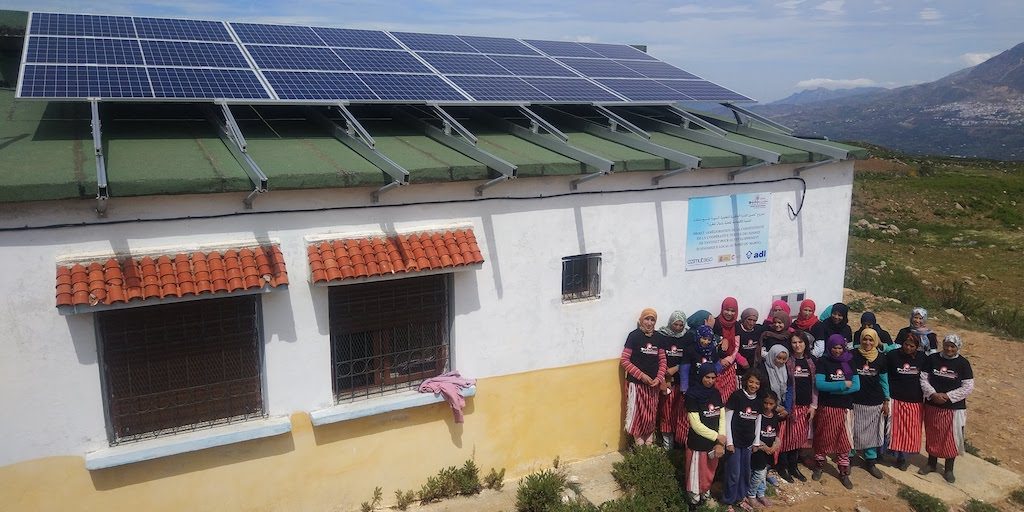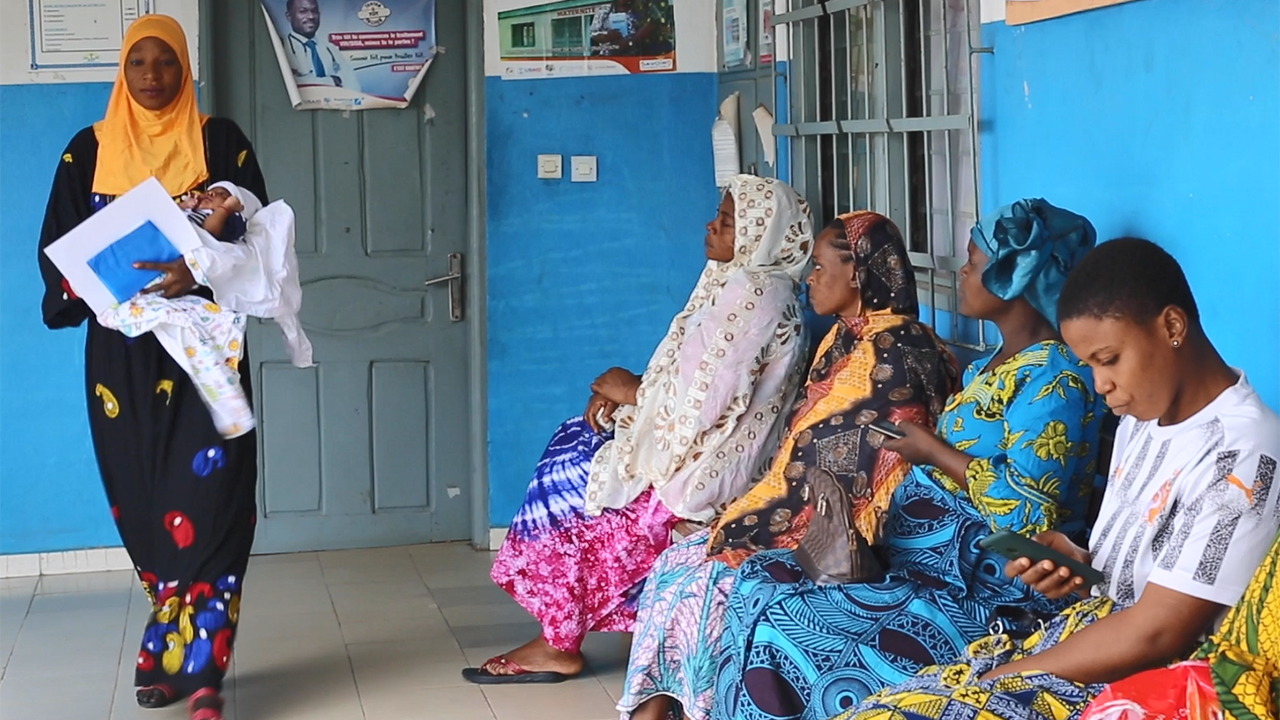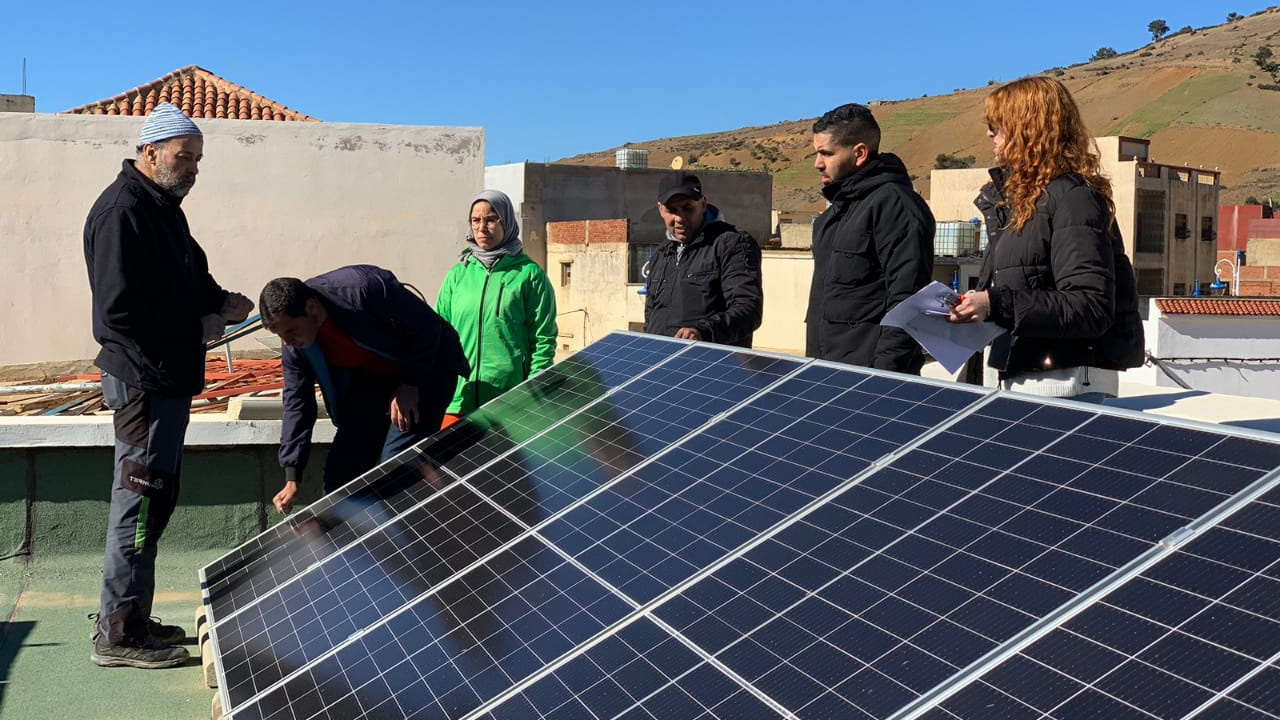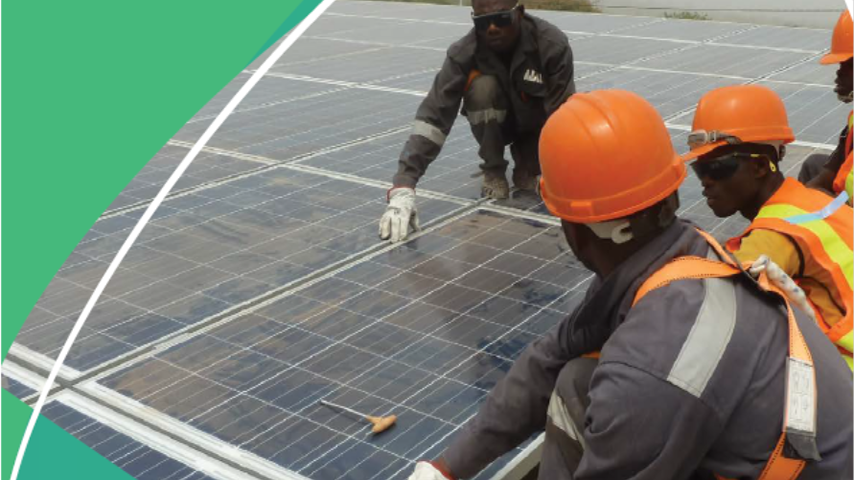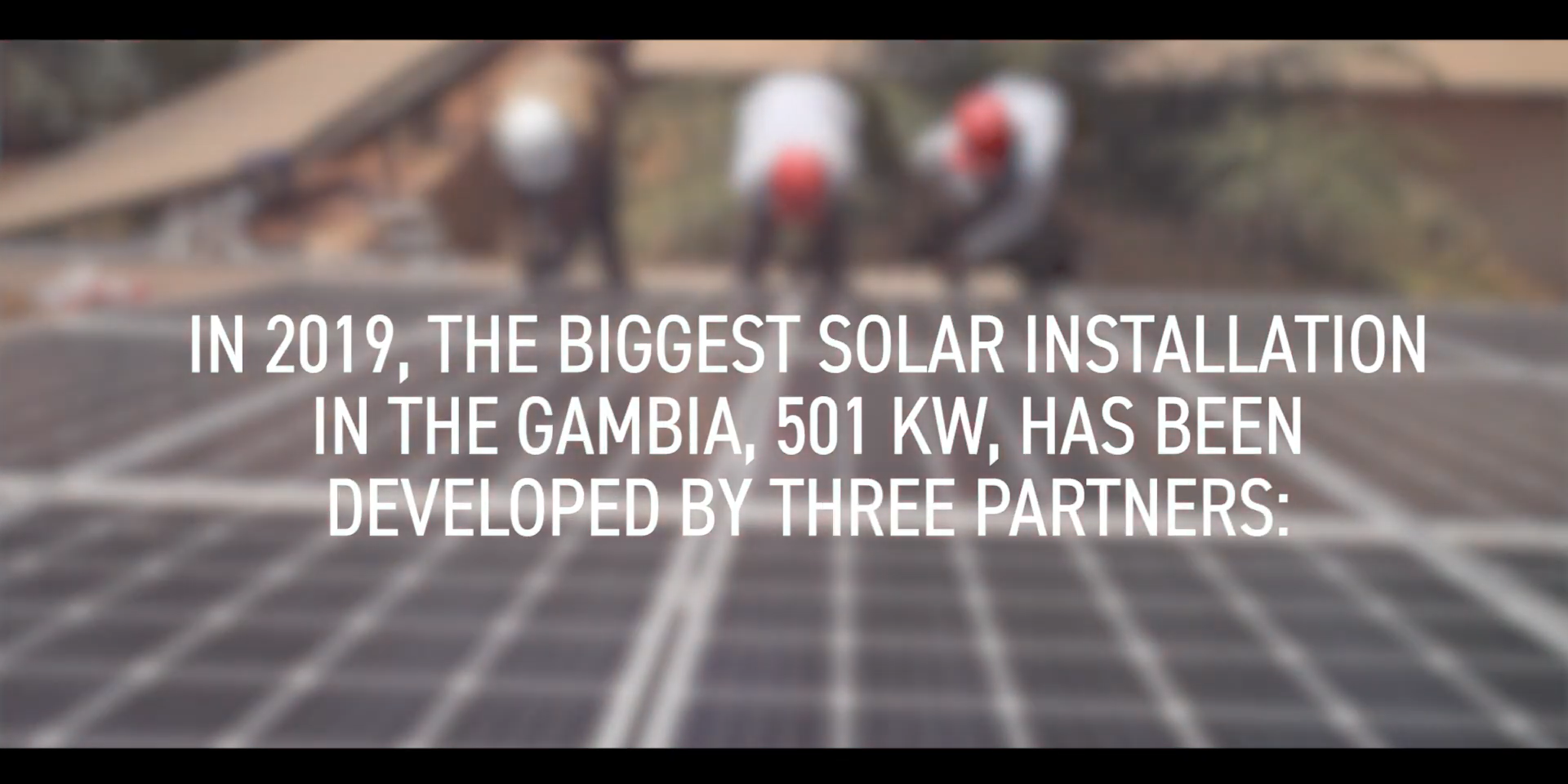Bouaké: from energy poverty to health
From energy poverty to Health care: the role of renewable energy in improving healthcare in Bouaké.
As part of the ongoing efforts to address the challenges posed by the COVID-19 pandemic and the global climate emergency, the #KotiakróA360 project has been launched. This project is being led by our engineer, Maria Vivancos, and has received funding from the Catalan Agency for Development Cooperation (ACCD). The primary goal of this initiative is to enhance the provision of healthcare services at the Health Center and Maternity Ward located in the Kottiakoffikro neighbourhood of Bouaké city in Ivory Coast.
During the intervention in the area, a photovoltaic generation system has been implemented, which has ensured the availability of electricity 24 hours a day and improved the energy efficiency of the impacted center. It should be noted that in many areas of Africa, the general electricity network is unstable and causes frequent power outages.
This often results in hospitals or health centers being left in the dark while consultations, surgeries, etc. are being carried out, or medical equipment deteriorating due to poor quality of the network.
Additionally, the intervened infrastructure benefits from energy savings by consuming less energy from the grid.
The implementation of solar panels enables the stabilization of electrical supply and ensures its availability, which provides a substantial improvement in the service and provision of healthcare, as well as the lifespan of medical equipment, by minimizing network failures.
In the first phase of the project, our project manager and engineer worked with local technicians to install a photovoltaic system that ensured the availability of locally-produced electrical energy from renewable sources. During the process, the technicians were trained in maintaining the solar plant, promoting maximum local autonomy possible. Moreover, this installation has also enabled the availability of locally-produced medical oxygen with concentrators.
Oxygen is an essential medicine for the management of childbirth and the treatment of childhood illnesses such as pneumonia, malaria, or sepsis, which are prevalent in the intervention area. Furthermore, with the COVID-19 pandemic, oxygen became even more critical for health centers and hospitals such as Kotiakró, which was designated by the Ministry of Health as a center for the isolation and treatment of COVID-19 patients. At that time, during the pandemic, it was anticipated that, while the majority of treated patients presented mild symptoms, 14% would require oxygen in the hospital, and 5% would require mechanical ventilation in intensive care. Therefore, the availability of medical oxygen became a vital issue to ensure the health and well-being of the population.
The installation of 3 concentrators has allowed the hospital to have guaranteed access to medical oxygen 24 hours a day, 7 days a week, in order to meet the needs for medical oxygen, which were previously not guaranteed.
As explained by Eugène Kra Kouassi, President of AIP, and Assé Kouadio Innocent, Director of the Pediatrics Department at the CHU (University Hospital Center), in the documentary you can watch, prior to the intervention, there were no public hospitals in the area that could administer continuous oxygen. Before the project, the only healthcare center in the city with oxygen availability was the CHU. However, the supply was not guaranteed, as it was provided through cylinders that were filled at centralized plants in Abiyán, which is a 5-hour drive from Bouaké.
Indeed, due to the lack of availability of continuous oxygen supply in Bouaké, patients would have to be transferred to the hospital in Yamoussoukro. Therefore, it was deemed necessary to find alternatives for the supply of medical oxygen in Bouaké.
If someone outside the city needed this treatment, they often had to travel more than 40 km to reach the CHU in Bouaké. Many times they arrived and there was no oxygen available in the cylinders.
In addition to the installation of the oxygen concentrators, technical and healthcare personnel were trained on the proper use of the equipment and improved patient care. The project not only includes the technical aspects related to the installations, but also aims to approach healthcare and health improvement through the sensibilisation of the local population near the Kotiakró Health Center, through the training of women’s groups in different villages and neighborhoods.
Throughout the different phases of the project, informative sessions on sexual and maternal-infant rights have been carried out with the aim of improving women’s health and the overall health of the community. These sessions provide knowledge and tools to promote sexual health from a rights-based approach focused on the well-being of individuals.
We work on projects like this because we believe that access to energy improves access to other rights such as the right to good healthcare or the right to education. Although the intervention in the area has already been completed, we are waiting to obtain results and assess the impact of the project on improving healthcare, both in terms of equipment, healthcare personnel, and beneficiaries.
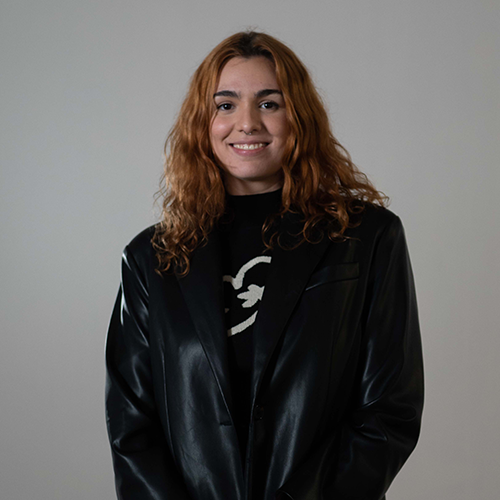
Maria Vivancos
Head of Cooperation & Oxygen Area
Azimut World
maria.vivancos@azimut360.coop
Technical advice on standardizing processes for creating micro-networks in rural areas in Mozambique
Technical advice on standardizing processes for creating micro-networks in rural areas in Mozambique.
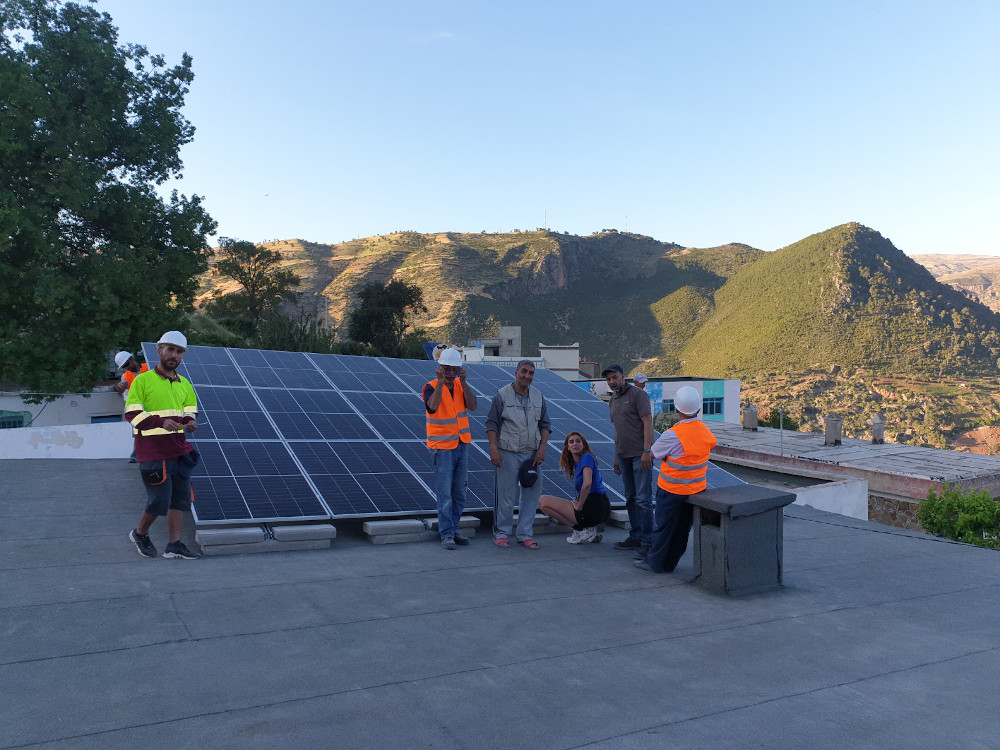
According to World Bank sources, in 2020 only 30.6% Mozambique’s population had access to electricity. The great challenge facing the country is its total electrification by 2030, especially of rural areas that are far from the grid.
FUNAE is the main public body in charge of electrifying the most remote and isolated areas, mostly with the implementation of micro-grids powered by renewable energy (solar photovoltaic and hydraulic). Currently, tools are needed to build and maintain the mini grids and guarantee quality standards.
In this context, our engineer and head of international area @MarcosMorales has given training to provide process-standardization tools for designing and implementing micro-grids that will provide electricity in rural areas.
This technical assistance is provided for FUNAE as part of a project led by our colleagues @Aiguasol, which also proposes the design of a digital tool to control and monitor micro-grid data as part of the DigutalEnergy Challenge for Utilities 2022 competition.
Understanding the clean energy transition in community-driven decentralised renewable energy projects in Germany and sub-Saharan Africa
Understanding the clean energy transition in community-driven decentralised renewable energy projects in Germany and sub-Saharan Africa.
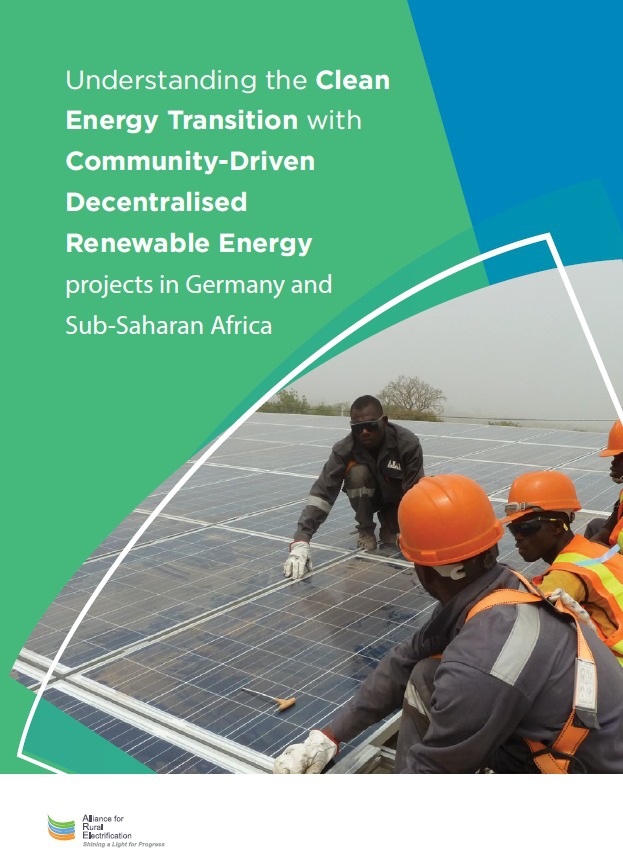
AZIMUT360 installs 500 kW for Gambia MRC
AZIMUT360 installs 500 kW for Gambia MRC.
Inauguration of the Tanafelt solar micro-grid
Inauguration of the Tanafelt solar micro-grid.
